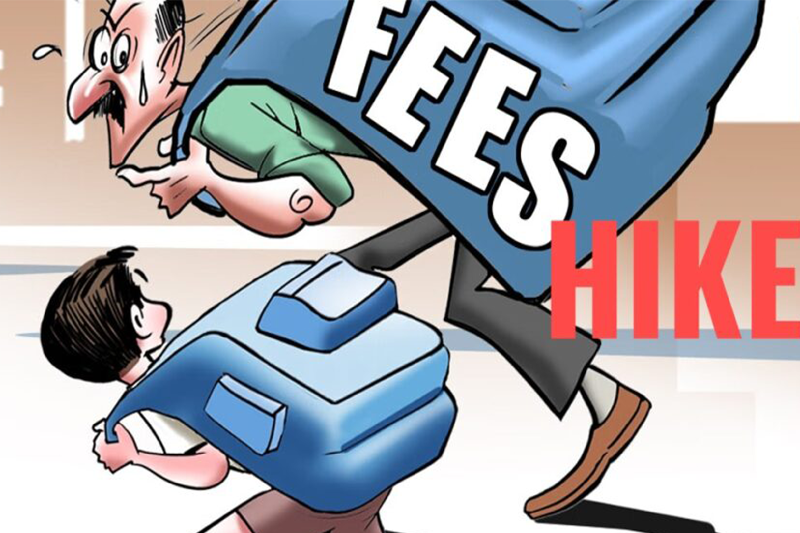
Maharashtra Plans Crucial Amendments to Fee Regulation Act Amid Rising Complaints Against Schools
State Looks to Curb Exorbitant Hikes, Improve Transparency, and Empower Parents with Stronger Complaint Mechanisms
The Maharashtra government is preparing to introduce sweeping amendments to the Maharashtra Educational Institutions (Regulation of Fees) Act, 2011, in response to mounting complaints about exorbitant fee hikes and alleged financial irregularities by private institutions. This move aims to empower parents, enhance transparency, and curb manipulation of infrastructure costs used to justify steep fee increases.
Key Reforms Underway: From Collective to Individual Complaints
One of the most significant proposed changes is the removal of the current requirement that at least 25% of parents must jointly file a complaint for it to be considered by the Divisional Fee Regulatory Committee.
According to a senior official in the school education department, this clause has proven to be a significant obstacle. Organizing such a large percentage of parents is not only challenging but is often discouraged by fear:
“Parents are wary of raising their voice against school managements out of concern for their children’s well-being and academic future.”
By eliminating this requirement, the amended law would allow individual parents to file complaints, significantly increasing accessibility and accountability.
Area-Wise Fee Structures on the Anvil
The government is also planning to introduce area-based fee slabs modeled on Gujarat’s Self-Financed Schools (Regulation of Fees) Act, 2017. The proposed structure would differentiate fee ceilings based on:
- Operational costs
- Local demand-supply dynamics
- Regional cost of living
This is particularly relevant for Maharashtra, where a stark income disparity exists between urban and rural areas. An official noted:
“The Gujarat model fits Maharashtra’s demographics well, given our vast per capita income gap across districts.”
Tighter Scrutiny of Infrastructure-Based Fee Hikes
Currently, private schools can increase their fees by up to 15% every two years, provided they claim that the increase is linked to infrastructure or facility upgrades. However, officials say that inflated cost justifications are common. Under the proposed amendments, a new cost assessment mechanism will verify whether such hikes are legitimate.
“Fee hikes will only be permitted after being vetted through an independent cost-assessment process,” confirmed an education department official.
Moreover, there are concerns that Parent-Teacher Association (PTA) members, who are supposed to represent the parent community during fee approval, often side with school management. The new law aims to introduce more neutral oversight mechanisms.
Government Schools, Coaching Classes Also Under the Scanner
The scope of the amended act will continue to include all school categories—government, aided, partially aided, unaided, and self-financed. This differs from Gujarat, where only self-financed schools are subject to the fee regulation law.
Additionally, the Maharashtra government plans to bring coaching classes under a new regulatory framework, which is expected to be passed during the upcoming monsoon session of the legislature.
This inclusion follows the rapid rise in coaching class enrolments across urban centers, especially in Mumbai and the Mumbai Metropolitan Region, which collectively house over 16,000 self-financed schools.
Legal Backbone from Gujarat's Precedent
The Gujarat Fee Regulation Act has withstood judicial scrutiny, having been upheld by both the Gujarat High Court and the Supreme Court of India. This provides a strong legal foundation for Maharashtra to model its reforms on Gujarat's example.
Advocate Anubha Sahay, President of the India Wide Parents Association, welcomed the move:
“Parents have been demanding this for years. We fully support the proposed amendments.”
She also emphasized the urgent need for financial transparency:
“The government must make it mandatory for schools to submit their annual audit reports.”
Existing Regulatory Bodies Need Revamp Too
Sahay also flagged long-standing issues with the District Fee Regulation Committees (DFRCs), whose operations are often compromised by:
- Inadequate facilities
- Lack of compensation for retired judges
This has led to a shortage of willing judges to lead DFRCs, which affects the timely resolution of parent complaints.
The government has acknowledged these concerns and is considering changes to enhance the functionality and appeal of DFRC positions.
Mixed Response from School Managements
A representative from a city-based school management association expressed caution, stating:
“We haven’t received the draft yet, so we can't comment officially. We already submit audit reports to the Charity Commissioner and are open to sharing them with the education department.”
However, the representative warned that permitting complaints from individual parents could lead to misuse:
“The law must clearly define who qualifies as a ‘single person’ complainant to avoid frivolous or malicious use.”
Political Overtones: Cleaning Up a Legacy
A senior minister from the ruling Mahayuti government criticized the original 2011 legislation enacted by the Congress-led government, claiming it was not parent-friendly and allegedly favored powerful education barons who were part of the administration at the time.
The proposed amendments, according to the minister, are an effort to prioritize parents and students, ensuring a more just and transparent system.
Conclusion: A Promising Shift Toward Fairness in School Fee Structures
Maharashtra’s move to amend the 2011 Fee Regulation Act could mark a turning point in how private school fee hikes are handled across the state. By:
- Empowering individual parents
- Introducing area-based fee slabs
- Strengthening transparency and audit mechanisms
- Bringing coaching classes under regulation
…the state government is addressing long-standing grievances and bringing greater equity to education finance.
As the proposed changes progress through the legislative process, parent groups, school administrators, and legal experts will be closely watching, hoping that this time, the balance will shift in favor of students and their families.



